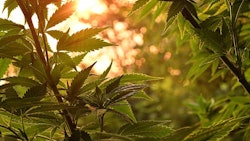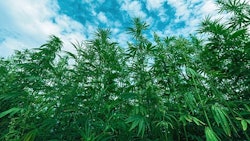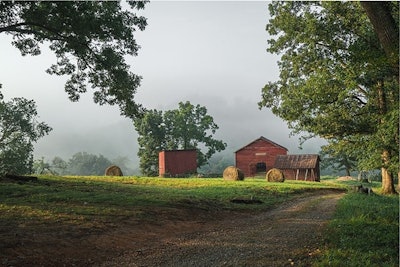
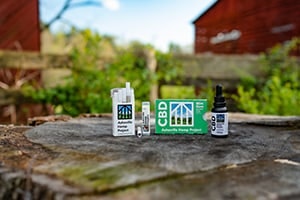 asheville products
asheville productsAsheville Hemp Project is launching its four new products at an uneasy moment in the retail marketplace, but even now there are hopeful opportunities. The company, which debuted its pre-rolls, chewing gum, lip balm and full-spectrum CBD tincture earlier this month, is sending 50% of its sales to the North Carolina Restaurant Workers Relief Fund.
As with so many aspects of this company, the story never veers far from its North Carolina roots.
Leslie Hoffman ran a farm in Hawaii for years before buying her 23-acre farm outside Asheville in 2015. Replete with sheds and drying barns and a sturdy 1935 log cabin, the property offered her the space to continue practicing the sustainable agriculture that she’s made into her life’s work.
For the past 30 years, this particular property fed grazing cattle. “That turned out to be a total bonus because of course, it's had manure dropped all over it endlessly,” Hoffman says. “So, the soil quality was a pleasant surprise.”
Auspicious beginnings.
The “project” in Asheville Hemp Project comes out Hoffman’s partnership with scientist Scott Brinkley. The duo began working together in 2017, planning ahead for North Carolina’s newly geenlit hemp pilot program. They sold flower on the wholesale market and honed no-till, plastic-free cultivation practices on their experimental crop. By 2019, following the federal legalization of hemp, it became clear that the market was bound for rapid growth. “We realized there was an opportunity to build a brand and to start developing a variety of finished products,” Hoffman says.
Thus, Asheville Hemp Project was created to shepherd those products to an emergent retail consumer base.
The first move was to identify GMP-certified manufacturers that could help take the company’s crop and turn it into a variety of end uses. The wholesale market was one thing, but by this point consumers were beginning to reveal new demands as product innovation blossoms in the hemp space.
“If you really watch the pricing as more and more farmers come into the hemp world, it's a pretty tough go on a small scale if you do not differentiate yourself and create a unique story with unique products,” Hoffman says.
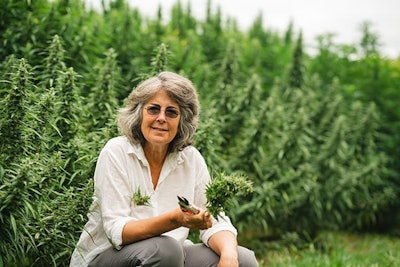 leslie hoffman
leslie hoffman“[Pre-rolls are] the simplest, most direct way [to sell hemp] while being put into a packaged products,” she says. “It's consistent and uniform and can be delivered in an ongoing way and can be created en masse. It is the simplest, purest way to use hemp flower.” There’s another story there, too, something that harkens back to the North Carolina tobacco industry. Broadly speaking, the tobacco market has dwindled considerably in recent years, but the nod to heritage is another component to Asheville Hemp Project’s hemp-derived CBD products.
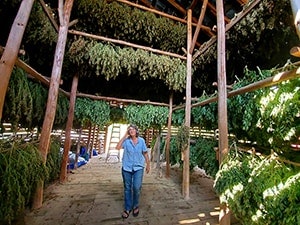 asheville hemp drying
asheville hemp dryingThe pre-rolls come in packs of 10, with 100 mg of CBD in each.
Elsewhere in the budding portfolio, Hoffman points to the brand’s chewing gum as a fresh take on casual, discreet CBD use.
“The gum is unique because it is so efficient and such a normalized process for people who need CBD or can benefit from CBD, but who really don't want to smoke and don't want to get their head up and put droppers of oil in under their tongue,” she says. “They just pop a piece of gum or two a day and get great benefit from it.”
The company’s hemp lip balm includes no cannabinoids, opening the product to retailers around the country.
Last year, Asheville Hemp Project grew cultivars like Cherry Mom, Lifter and Hawaii Haze. Over the winter, the company got into small-scale breeding on-site. Looking ahead to 2020, Hoffman and the team are considering more CBG-dominant hemp cultivars. She also mentions a tilt toward more food production on the Asheville land, a shot at greater diversity on the farm as the hemp project continues to develop.
“We work like we are a project,” she says. “So, we're developing new products. And this year, we're going to grow some new strains, and that'll help us innovate some of our products. And we'll keep evolving in that way.”









